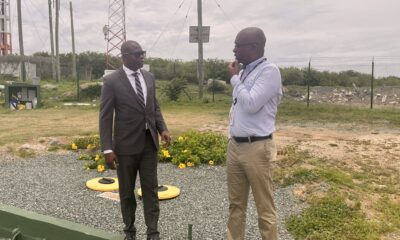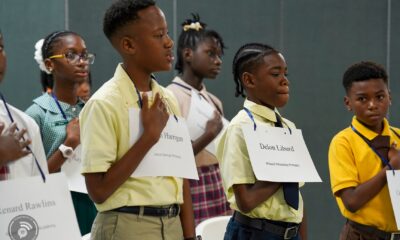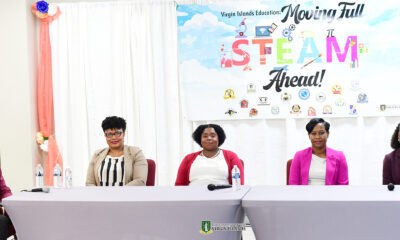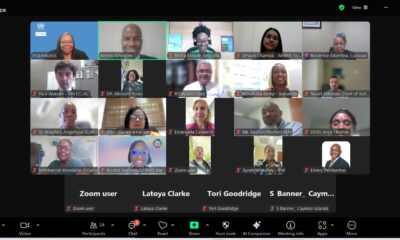Local News
Cape Air Unveils Striking New Livery Celebrating the Spirit of the Caribbean
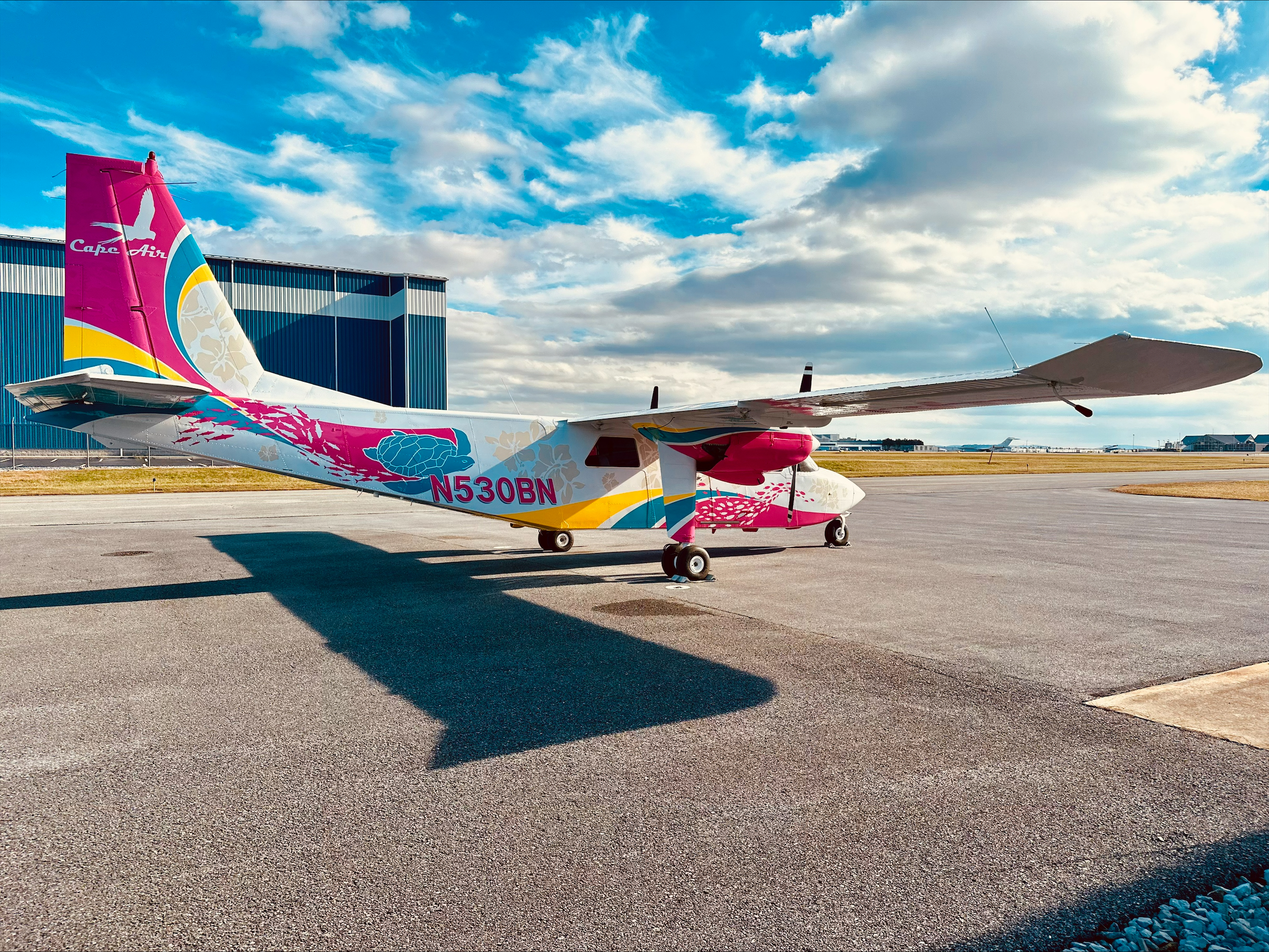
In celebration of the natural beauty of the Caribbean and Cape Air’s deep-rooted presence in the region, the airline unveiled a striking new livery on 13 November on one of its Britten-Norman Islander aircraft.
Introduced in San Juan, this vibrant design will soon be seen on flights to Virgin Gorda and Culebra, bringing a fresh burst of colour and symbolism to mark Cape Air’s 35th anniversary in aviation.
The livery pays thoughtful tribute to the spirit of the Caribbean, featuring iconic imagery that represents both the airline’s core values and the cultural heritage of the region. At the centre of the design is a large sea turtle, symbolising Cape Air’s resilience and connection to the Caribbean. The turtle, known to represent endurance, adaptability, and patience, reflects the journey of an airline that has served Caribbean passengers for decades. Cape Air’s CEO, Linda Markham, highlighted this connection, stating, “The sea turtle represents our long-standing commitment to the Caribbean, where we’ve grown alongside the communities we serve.”
In addition to the turtle, the design features hibiscus flowers in bright hues, evoking the joy and sunshine characteristic of Caribbean life. Representing good fortune, the hibiscus mirrors Cape Air’s optimistic outlook for the future. “As we celebrate our 35th anniversary, this flower symbolises the hope and prosperity that guide us forward,” said Markham.
The livery also includes a dynamic school of fish, a nod to teamwork and unity, which Cape Air says forms the foundation of its approach to service. Few places foster such a strong sense of community as the Caribbean, where Cape Air has long prided itself on close ties with local markets and passengers. “The school of fish reminds us that our strength lies in our collective efforts – from our dedicated team to the passengers who trust us to connect them with the places they love,” Markham noted.
These anniversary celebrations are not only about aesthetics but also serve as a reaffirmation of Cape Air’s commitment to the Caribbean. Since its establishment, the airline has woven itself into the fabric of local life, building partnerships with tourism boards, small businesses, and communities in the territories it serves. The Britten-Norman Islander aircraft, small yet versatile, embodies this adaptability and accessibility, making it the ideal canvas for such a tribute.
Passengers fortunate enough to board this special aircraft will be treated to an enhanced travel experience as they connect with destinations like Virgin Gorda and Culebra. Cape Air hopes this symbolic livery will serve as both a celebration of Caribbean culture and a reminder of the region’s unique natural beauty.
Local News
Minister Rymer Briefed on Airport Infrastructure Enhancements
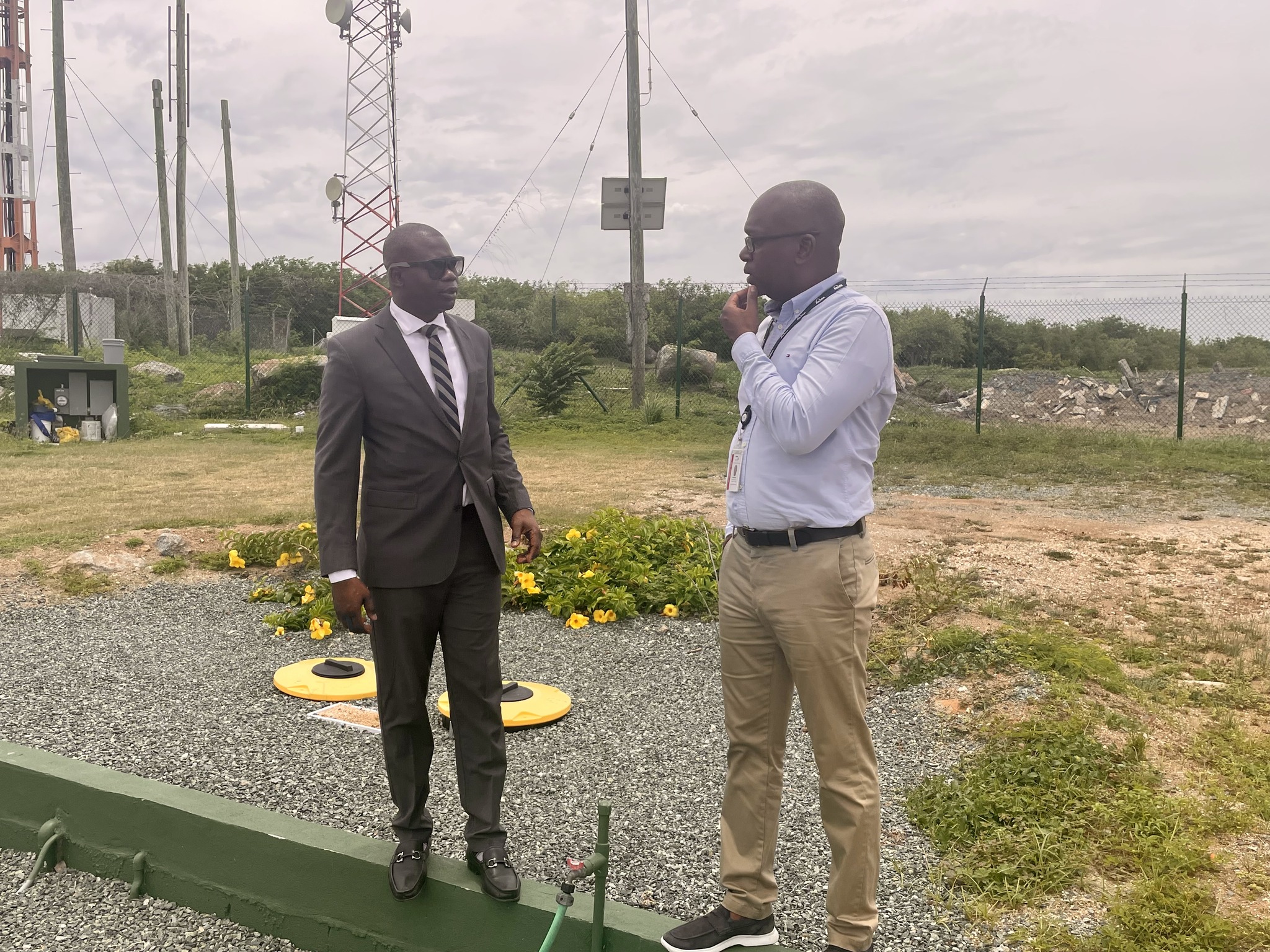
Minister of Communications and Works, Honourable Kye Rymer, has received a briefing on recent infrastructural upgrades completed at the Terrance B. Lettsome International Airport.
The update was provided by Mr Kurt Menal, Managing Director of the BVI Airports Authority (BVIAA), who highlighted key improvements designed to enhance passenger experience and operational efficiency at the Territory’s main airport.
Among the completed upgrades is the installation of a new luggage conveyor belt and expanded baggage collection area. The upgraded system has a greater capacity than the previous setup, aimed at improving the flow of passengers through the arrivals process.
Mr Menal also pointed to the commissioning of a modern sewage treatment plant, which has the capacity to accommodate up to 500,000 passengers annually. The environmentally sustainable system supports the BVIAA’s broader objectives of expanding airport capacity while meeting international environmental standards.
“The BVIAA continues to meet the safety and regulatory requirements outlined in the Air Navigation (Overseas Territories) Order 2001 and other applicable instruments,” Mr Menal said. “We are also focused on maintaining an environment that fosters employee excellence and high standards of service.”
The infrastructure enhancements form part of the government’s ongoing efforts to strengthen the Territory’s transportation network and prepare for anticipated increases in passenger traffic.
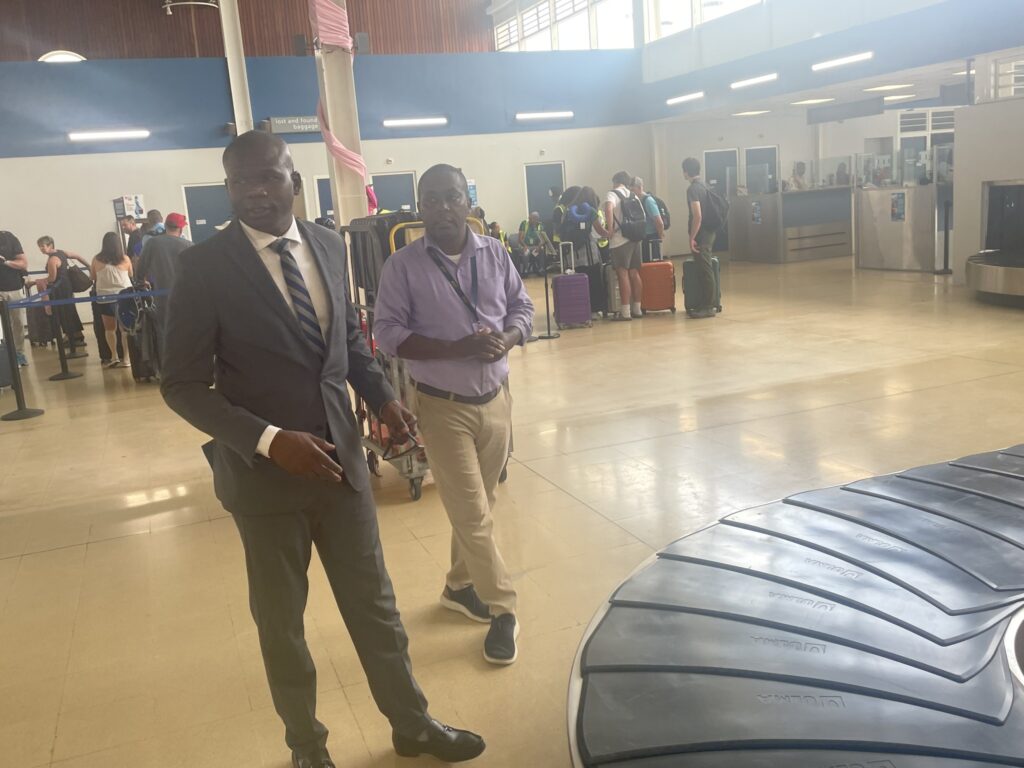

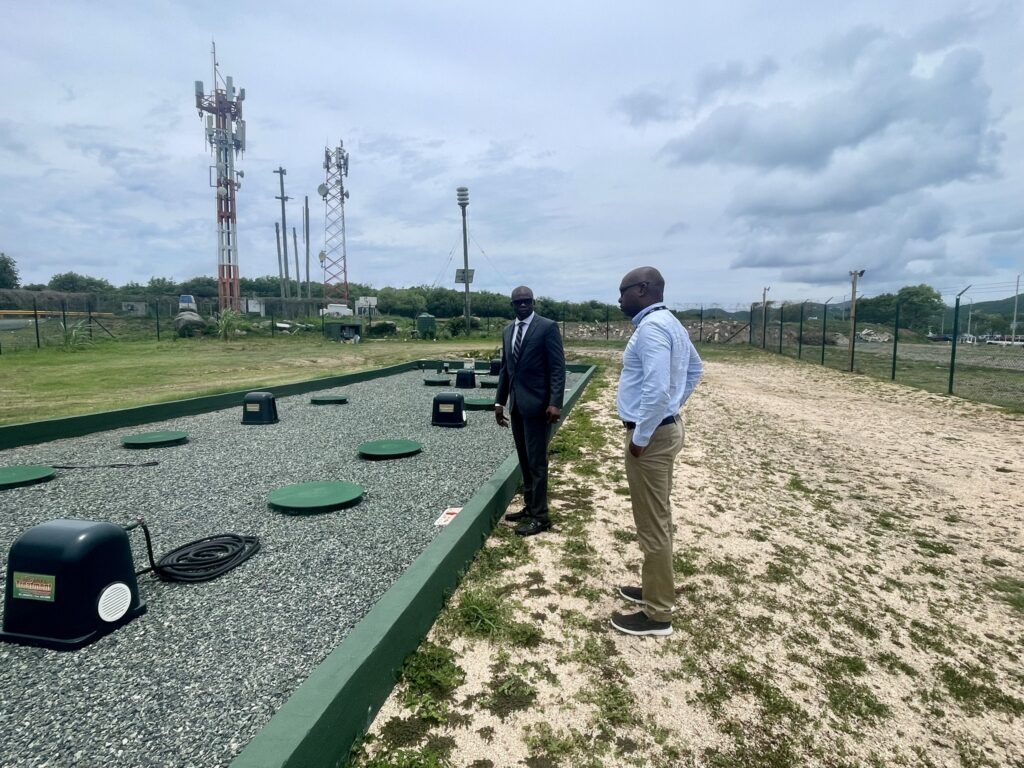
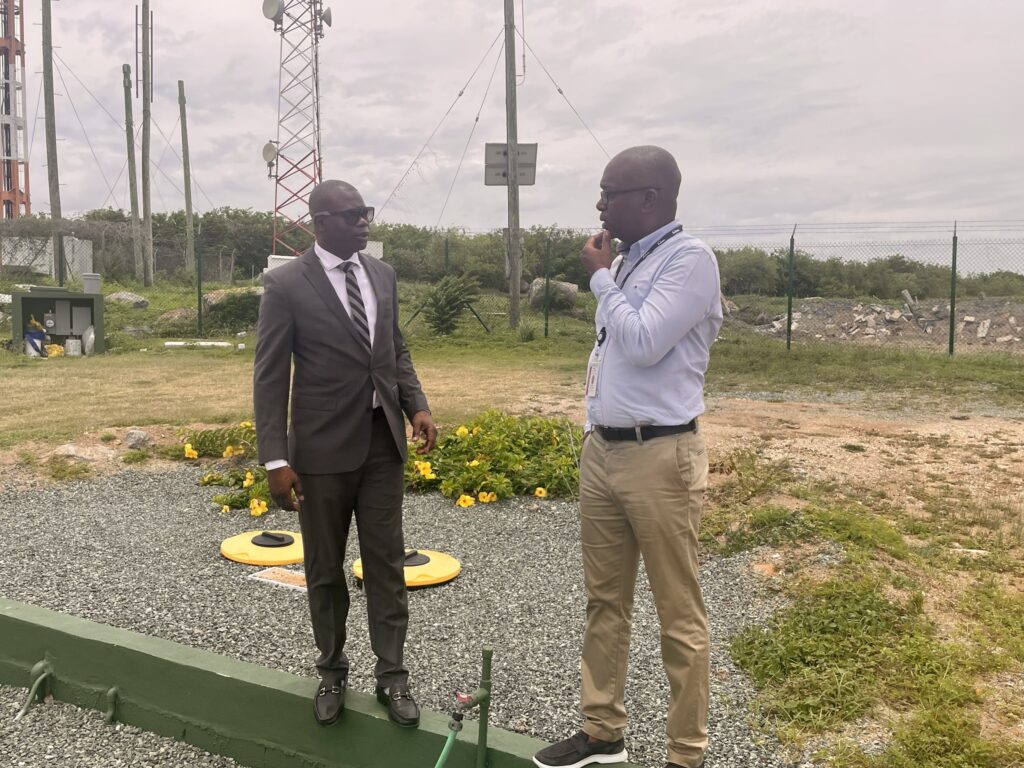
Education
Twelve Primary Schools Advance to Final Round of 2025 Spelling Bee

Twelve primary schools in the Virgin Islands have secured places in the final round of the Ministry of Education, Youth Affairs and Sports’ 2025 Spelling Bee Competition, scheduled to take place on 4 June.
The finalists were selected from a group of 17 schools that participated in the preliminary round, which featured a total of 34 students. Competitors prepared by studying a word list comprising approximately 3,000 words ahead of the event.
The final round of the competition will be streamed live on the official Facebook page of the Government of the Virgin Islands.
A recording of the preliminary round is also available for viewing on the same platform, at BVIGovernment.
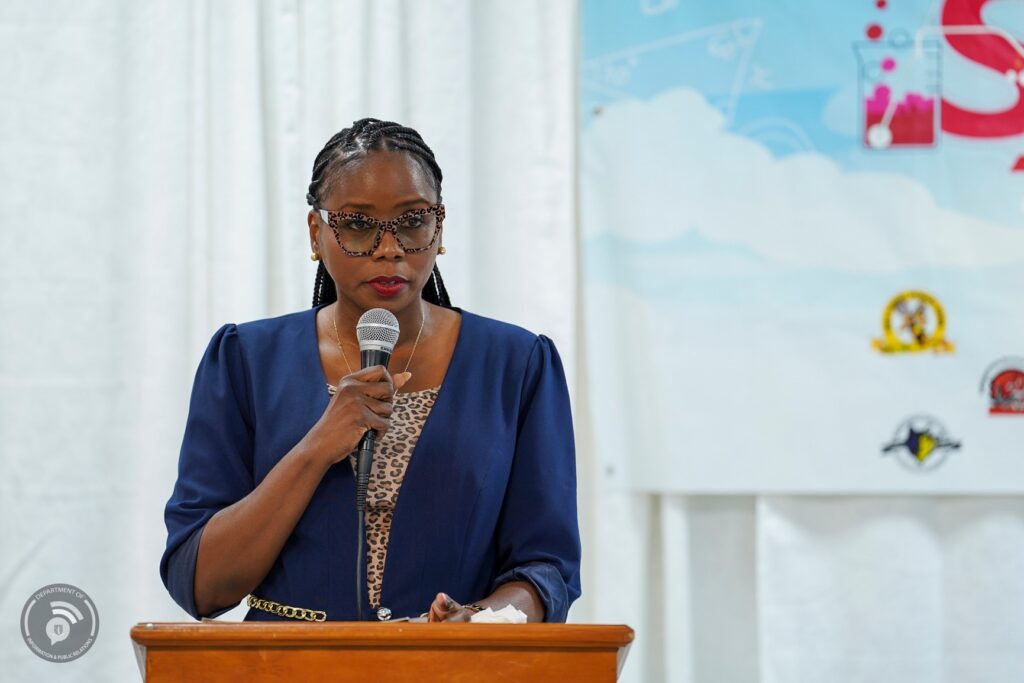
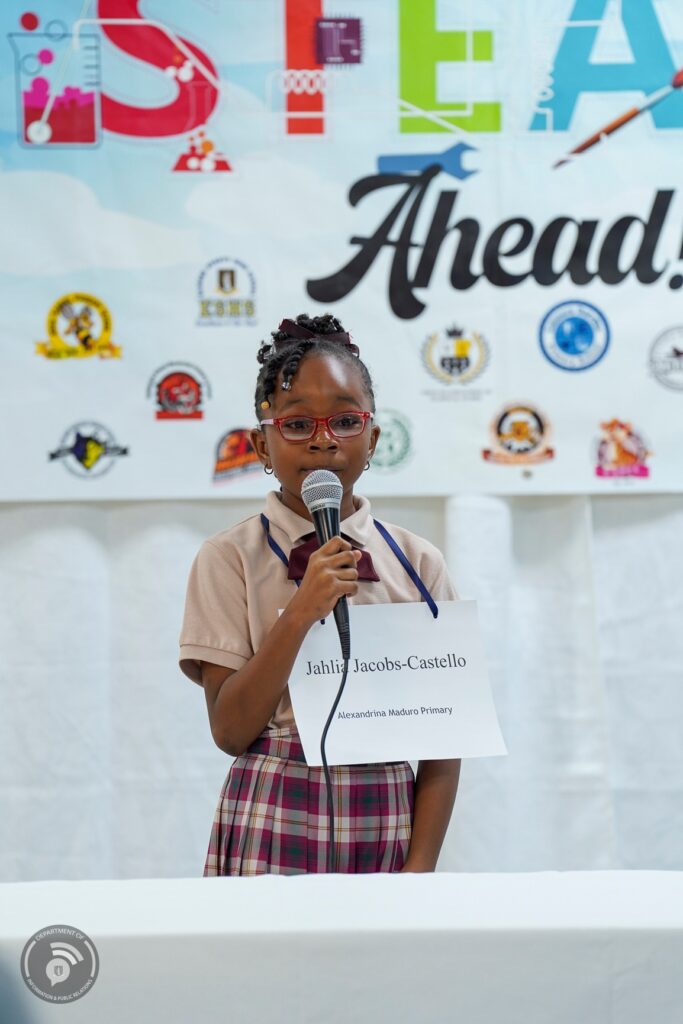
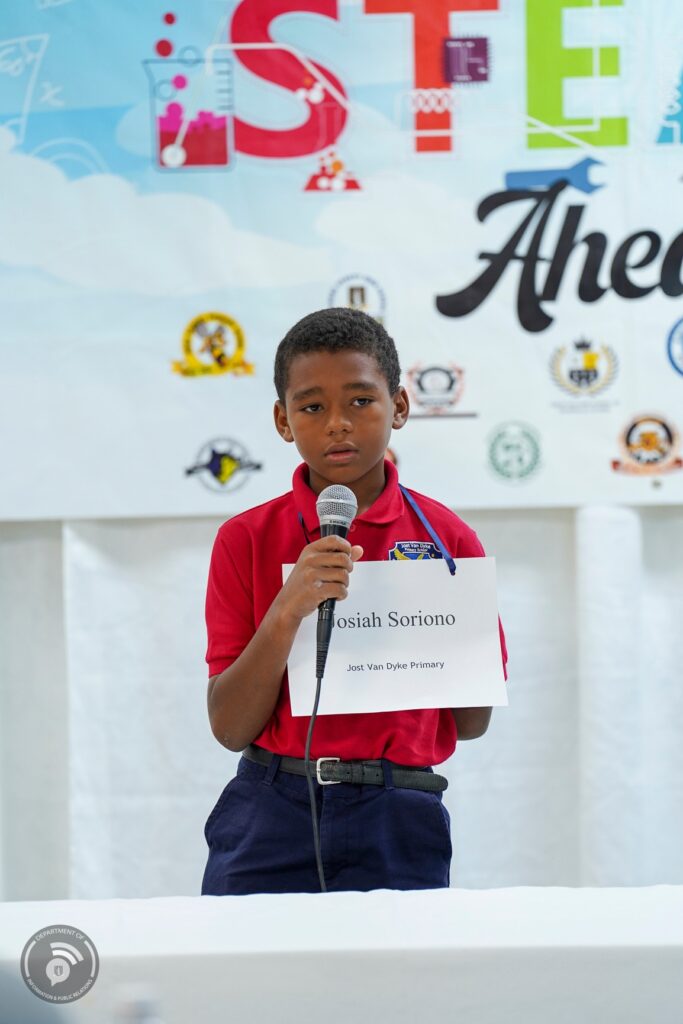
Local News
BVI Officials Host Panel on Early Childhood Development Challenges and Solutions
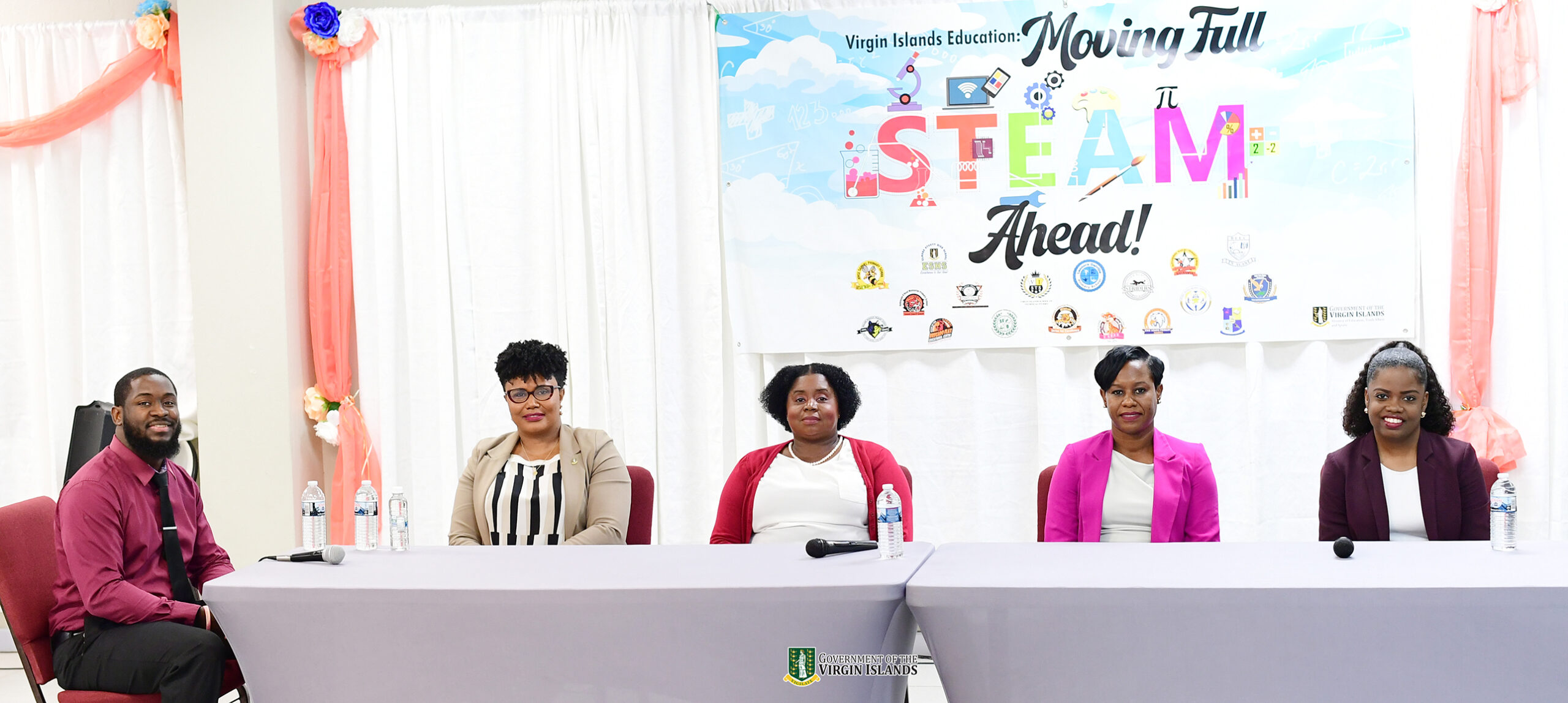
Officials from the Ministry of Education, Youth Affairs and Sports in the British Virgin Islands recently convened a panel discussion addressing the challenges and opportunities in early childhood development across the Territory.
The panel brought together voices from education, health, and the private sector. Participants included Chief Education Officer Mrs Orlandette Crabbe; Consultant Paediatrician in the BVI Health Services Authority (BVIHSA) Dr Natasha Frett; Founder of Imagination Academy VI Ms Sharia de Castro; and Education Officer responsible for Early Childhood Development Ms Kimberly George.
The session focused on the importance of early childhood education and the need for strategic approaches to prepare young children with both academic and non-academic skills.
Chief Education Officer Mrs Crabbe emphasised the value of foundational skills in preparing children for formal schooling.
“In formal schooling we start from the very beginning, but let me tell you what we want,” Mrs Crabbe said. “We want a child that can listen, and follow instructions, who can relate to their peers without throwing a tantrum and falling down because they have to share a pencil or crayon.”
She continued, “We want our centres to be empowered to focus on what matters, and those are those non-academic skills that come about through engagement in a child’s natural environment, which is play.”
Education Officer Ms Kimberly George echoed this sentiment, reinforcing the Ministry’s focus on long-term impact.
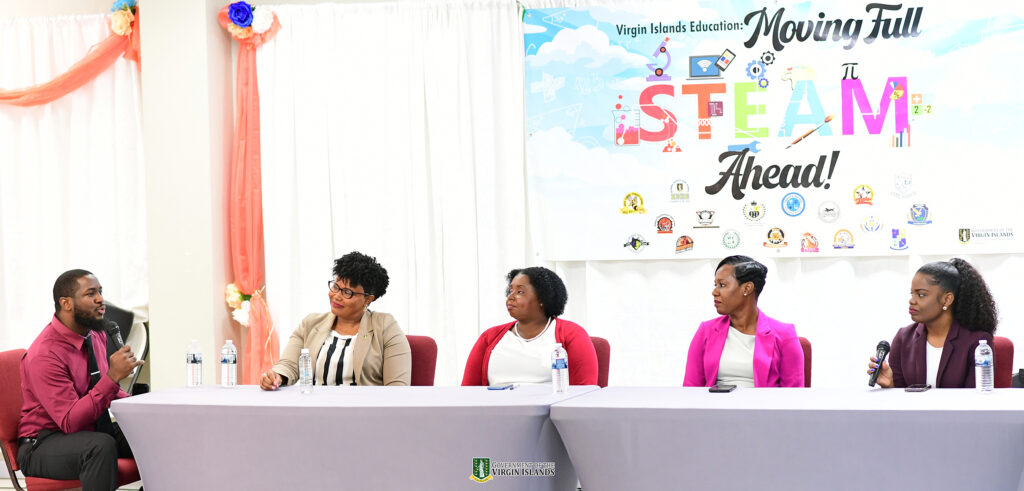
“In the Ministry, we worked to add the tagline ‘Early Learning, Lifelong Impact’ because we believe that early learning does have a lifelong impact on our children in the future,” she said. “As a Ministry, we are committed to ensuring that students receive the quality learning experience that they deserve at that level.”
From the health sector, Dr Natasha Frett provided insight on brain development in early childhood and its connection to future learning.
“I am sure many of you would have heard that in the first five years of life, it is very critical for mental and brain development,” Dr Frett stated. “It is during that time that about 90 percent of the brain is being developed, under the age of five. Here we have this opportunity where you have all these neural pathways and connections being formed.”
Dr Frett described this period as “a perfect opportunity to develop certain learning skills—cognitive learning skills, social learning skills—all of these are very important for the age of five because the brain is maturing.”
Founder of Imagination Academy VI Ms Sharia de Castro contributed her perspective from the private education sector, calling for a shift from traditional instruction to more interactive, skill-based learning.
“I think we have to move away from the culture that is quick to put a pencil into their hand and give them a worksheet,” Ms de Castro said. “Instead, give them interactive experiences where their whole body is engaged.”
She explained, “For example, if we are focusing on letter identification or formation, instead of giving them a pencil and asking them to do that, we give them some playdough and ask them to form it instead—because we are building finger muscles and everything that we need for later learning.”
The panel discussion was part of Early Childhood Awareness Week. The full video is available for public viewing on the Government’s official Facebook page at BVIGovernment.
-

 Crime/Police2 weeks ago
Crime/Police2 weeks agoManhunt Underway for ‘Small Brent’ in Nyron Erickson Murder Case
-

 Local News2 weeks ago
Local News2 weeks agoControversial 3-Point Call Proven a 4, But Result Stands: Team USVI Withdraws from Third-Place Match
-
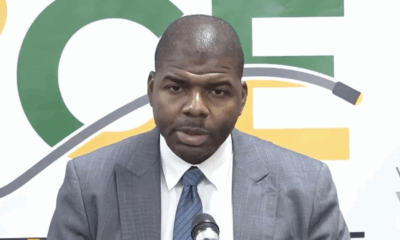
 Uncategorized2 weeks ago
Uncategorized2 weeks agoFestival Costs Outpace Revenue Despite $1M Intake, Says Premier
-

 Entertainment1 week ago
Entertainment1 week agoFive Students to Compete in Mr. & Miss HLSCC Pageant on June 1
-
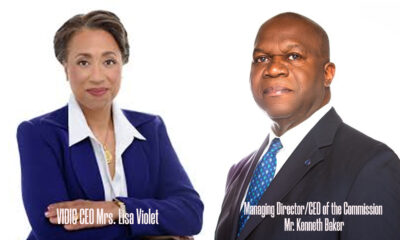
 Uncategorized2 hours ago
Uncategorized2 hours agoBritish Virgin Islands Regulators Move to Wind Down Bank of Asia (BVI) Limited
-

 Uncategorized4 days ago
Uncategorized4 days agoChantel Malone Leaps to First Place Amid Headwinds at Tucson Elite Classic:
-
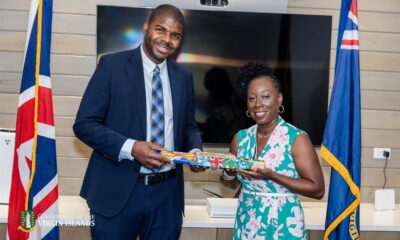
 Local News2 weeks ago
Local News2 weeks agoKing’s Baton Officially Handed Over to Premier in Ceremony Ahead of 2026 Games
-

 Crime/Police2 weeks ago
Crime/Police2 weeks agoDeputy Commissioner Confirms 17 Gun Robberies, Two Fatalities in 2025


